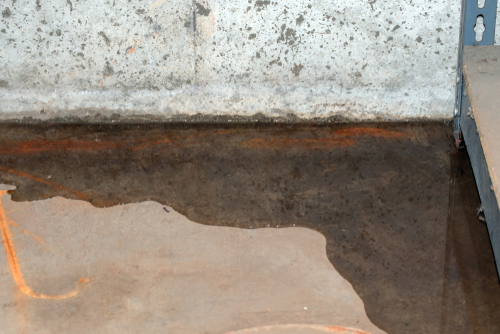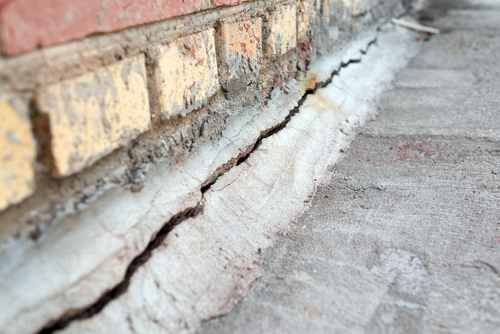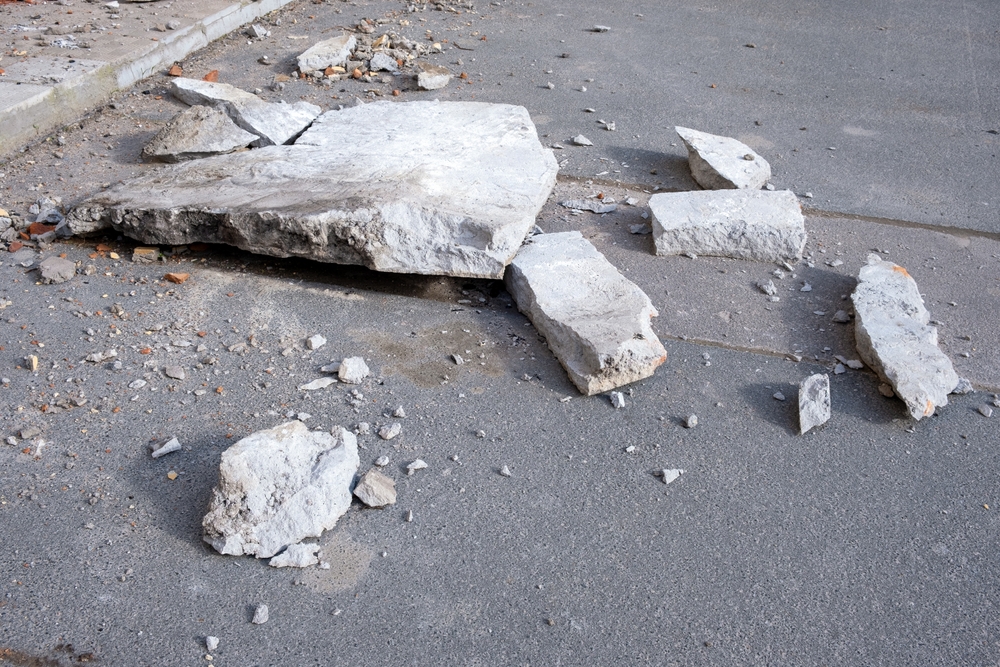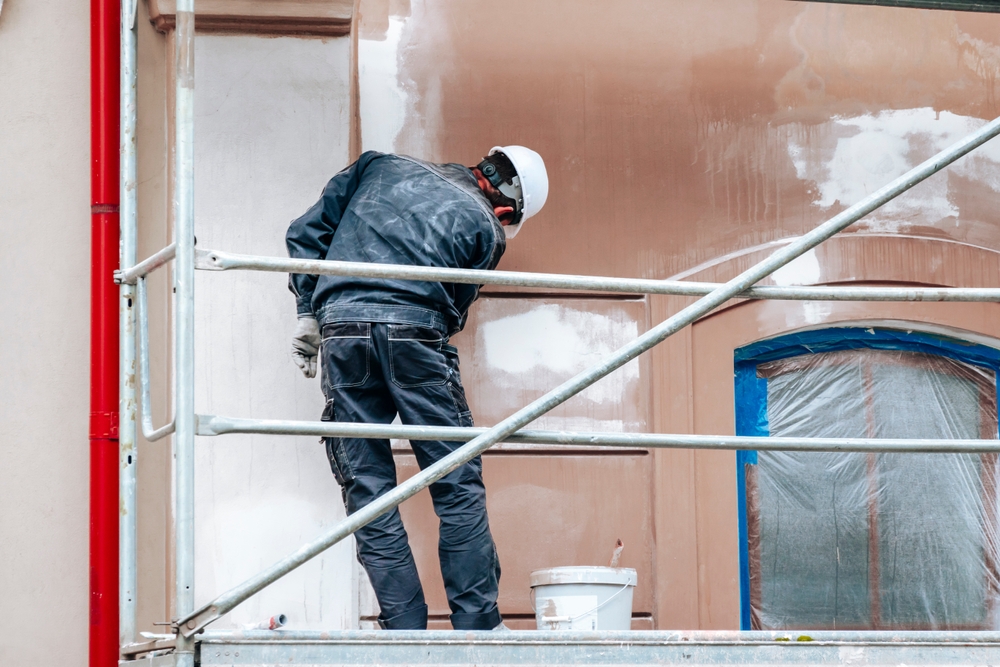May 30, 2024 - Benjamin Ehinger
Home Foundation Problems: Key Signs and Solutions
CALL NOW 844-762-8449
Your home’s foundation is crucial to its overall stability and safety, acting as the structural bedrock upon which everything else rests. When foundation problems arise, they can lead to serious structural issues that may compromise the integrity of the entire building. Recognizing the signs of foundation trouble early on is key to addressing issues before they escalate. Common indications of foundation problems include visible cracks in walls or floors, doors that won’t close properly, and uneven or sloping floors.
Addressing foundation concerns early can prevent more severe damage and ultimately save homeowners significant time and money. While minor cracks might not signal emergency repairs, larger fissures can indicate substantial movement and require professional evaluation. Understanding the causes, from natural soil settlement to water damage, is essential in both problem diagnosis and formulating an effective repair plan. Regular maintenance and staying vigilant about the health of your foundation can prevent many problems and help ensure your home remains secure and level.
 Before seeking repairs, accurately identifying foundation problems is critical. A solid diagnosis will provide insight into whether you’re dealing with cosmetic damage or structural threats to your home’s integrity.
Before seeking repairs, accurately identifying foundation problems is critical. A solid diagnosis will provide insight into whether you’re dealing with cosmetic damage or structural threats to your home’s integrity.
 Maintaining the stability of your home’s foundation is crucial for the longevity of your structure. There are several key practices you should implement to help prevent foundation problems.
Proper Landscaping:
Maintaining the stability of your home’s foundation is crucial for the longevity of your structure. There are several key practices you should implement to help prevent foundation problems.
Proper Landscaping:
Remember, addressing water intrusion and ensuring proper drainage around your home is pivotal in preventing foundation damage. Regular maintenance and inspections can help you catch and address issues early, potentially saving you from costly repairs in the future.
Key Takeaways
- Early detection of foundation problems can prevent severe structural damage to your home.
- Signs of foundation problems may include cracks, doors that don’t close correctly, and uneven floors.
- Understanding and addressing the causes of foundation issues is critical for effective repairs and maintaining the integrity of your house.
Understanding Foundation Problems
Understanding the types of foundation cracks and the common signs and symptoms helps you catch foundation issues early. Early detection can save money and preserve the structural integrity of your home.Types of Foundation Cracks
- Vertical Cracks: Usually less serious and often caused by shrinkage as the foundation cures. They run straight up and down or slightly diagonal within 30 degrees of vertical.
- Diagonal Cracks: Typically wider at one end, these can signal differential settling of the foundation and potentially more serious issues.
- Horizontal Cracks: These are serious warning signs often caused by pressure from soil or water on the foundation. Immediate professional assessment is recommended.
- Hairline Cracks: Very thin cracks that might be superficial, but if they’re increasing in width, it’s best to monitor them closely.
Common Signs and Symptoms
- Wall Cracks: Be alert for new or expanding cracks in plaster or drywall. Uneven floors can indicate a shift in your foundation.
- Doors and Windows: Difficulty in opening or closing them could signify a shift. Gaps around window frames or doors are often signs of foundation movement.
- Floor Cracks: Cracks in concrete floors can be indicators of foundation settling or problems with the soil underneath.
Causes of Foundation Damage
When considering the integrity of your home, understanding the causes of foundation damage is essential. From environmental influences to construction decisions, several factors can undermine the stability of your foundation.Environmental and Soil Factors
- Soil Conditions: The type of soil beneath your home plays a crucial role in foundation stability. Clay soils tend to expand and contract with moisture changes, leading to settlement and shifting. Similarly, unstable soil or soil that has not been properly compacted can cause foundations to move or sink.
- Moisture and Drainage Issues: Ideal moisture levels are key to foundation health. Excessive moisture due to poor drainage can lead to swelling of the soil, while too little moisture can cause soil shrinkage. Both extremes contribute to foundation movement.
- Tree Roots: Large tree roots can cause soil displacement or desiccation, creating voids into which your foundation may settle. The growth of roots can also exert pressure on foundation walls.
Structural and Construction Issues
Quality of Construction: The methods and materials used during the construction of your home’s foundation are fundamental. Inadequate construction practices can result directly in compromised structural integrity and foundation distress. Design Considerations: The design of your foundation should be suited to the environmental conditions and the soil type of your site. Insufficient design can lead to inadequate load distribution, resulting in cracks and damage. By recognizing these prevalent causes, you can be more proactive in preventing foundation damage and maintaining the stability and value of your home.Diagnosing Foundation Issues
 Before seeking repairs, accurately identifying foundation problems is critical. A solid diagnosis will provide insight into whether you’re dealing with cosmetic damage or structural threats to your home’s integrity.
Before seeking repairs, accurately identifying foundation problems is critical. A solid diagnosis will provide insight into whether you’re dealing with cosmetic damage or structural threats to your home’s integrity.
Professional Foundation Inspection
If you witness warning signs like uneven floors or cracks in the foundation, it’s time to consult a structural engineer. These professionals conduct a thorough foundation inspection to assess the severity and determine the cause. Rely on trusted local pros, as a detailed inspection can reveal whether those small cracks are benign or a symptom of deeper issues.Homeowner’s Checklist for Foundation Evaluation
When evaluating your home’s foundation, it’s beneficial to follow a systematic approach:- Exterior Inspection:
- Check for cracks in the foundation walls.
- Examine the ground for signs of unusual settling or landscaping shifts.
- Interior Inspection:
- Look for gaps around window frames and doorways.
- Notice any slopes or uneven floors; a level can be helpful here.
Solutions for Foundation Repair
When your home suffers from foundation issues, it’s crucial to address them promptly. The right repair technique can mitigate further damage and restore the stability of your home.Repair Techniques for Minor Issues
For minor foundation cracks and settling, repairs may involve sealing with an epoxy injection. This fills the crack thoroughly, bonding the concrete for a secure fix. Another method is using grout, injected under pressure to close gaps and stabilize the affected area.- Epoxy Injection: Best for hairline cracks less than 1/4 inch wide.
- Grout Filling: Suitable for slightly larger cracks and settling issues.
Underpinning and Significant Structural Repairs
If your foundation damage is significant, underpinning might be necessary. This involves extending the foundation in depth or width so it rests on more supportive soil. Underpinning often uses piers designed to transfer your home’s weight to stable soil or bedrock far below.- Concrete Piers: Installed by drilling into the ground and pouring concrete.
- Steel Piers: Driven deep into the ground and are less invasive, with a faster installation time.
Preventing Foundation Problems
 Maintaining the stability of your home’s foundation is crucial for the longevity of your structure. There are several key practices you should implement to help prevent foundation problems.
Proper Landscaping:
Maintaining the stability of your home’s foundation is crucial for the longevity of your structure. There are several key practices you should implement to help prevent foundation problems.
Proper Landscaping:
- Ensure the soil around your home slopes away from the foundation to prevent water pooling.
- Plant trees and shrubs at an appropriate distance from your home to avoid root-caused pressure on the foundation walls.
- Clean gutters regularly to avoid blockages that can lead to water overflow.
- Install downspouts that direct water at least 5 feet away from your foundation, reducing the risk of soil saturation.
- Employ a dehumidifier in your basement to maintain low humidity levels, discouraging condensation and water intrusion.
- Seal and insulate your basement or crawl space to protect against excess moisture.
| Task | Frequency |
|---|---|
| Gutter cleaning | Twice a year |
| Downspout inspection | After heavy rain |
| Landscaping checks | Annually |
| Dehumidifier maintenance | As per manual |
| Basement sealing inspection | Every 2-3 years |
Frequently Asked Questions
In addressing home foundation issues, it’s crucial to recognize the signs, understand their causes, and know when to seek professional help. Here are answers to common questions that can guide you through the basics of foundation problems.What are the early signs of potential foundation problems?
You may notice early signs such as cracks in your walls, doors that jam or won’t latch, and windows that stick or won’t close properly. Other indicators include gaps where your walls and floors meet, as well as sloping floors.Are there common causes of foundation issues in residential properties?
Yes, several factors contribute to residential foundation issues. These include soil expansion and contraction, improper soil compaction prior to construction, and excessive moisture due to poor drainage. Over time, environmental changes and initial construction quality can also play significant roles.How can you tell if foundation issues are serious?
Foundation problems can be serious if they compromise structural integrity. Signs of significant issues include large cracks in the foundation itself, extensive interior wall cracks, doors and windows that are severely misaligned, and noticeable sinking of one side of your home.Who should you contact if you suspect foundation problems in your home?
If you suspect issues with your foundation, it’s prudent to contact a foundation repair specialist. These professionals can provide a thorough inspection and recommend the appropriate repairs.At what point should foundation issues be a cause for concern?
Foundation issues should be a cause for concern when they lead to functional problems in the home, like persistent water intrusion or when they affect the operation and function of doors and windows. Any signs of widespread or growing cracks or separations in floors or walls should also prompt you to act.What are the implications of purchasing a home with known foundation problems?
Purchasing a home with known foundation problems can result in significant repair costs and potentially decrease the home’s resale value. It’s essential to assess the extent of damage and factor in the repair costs when negotiating the home’s price.RECENT BLOGS
Our Reviews
Glenda Lanier Prowell
1721758635
I have ordered an 11 yard dumpster to be delivered to my house.Lonier was extremely helpful and answered all my questions. The rate was very reasonable.
Cedric Smikle
1721660395
Amber was extremely professional and courteous. She answered all of my questions and even some that I didn’t know I needed to ask.
Cait Kaider
1721243051
I highly recommend Waste Removal USA for their responsiveness and how the staff work hard to provide exceptional customer service. They have done well by us and our clients. Thank you!
Easom Family
1721223306
Louiner Pierre-Louis Is awesome! Did a great job. Will definitely be using this same company for all my dumpster needs because of his awesome customer service! Thank you!!!
tabitha Vazquez
1720539988
Wonderful and fast customer service!
LATEST BLOGS






